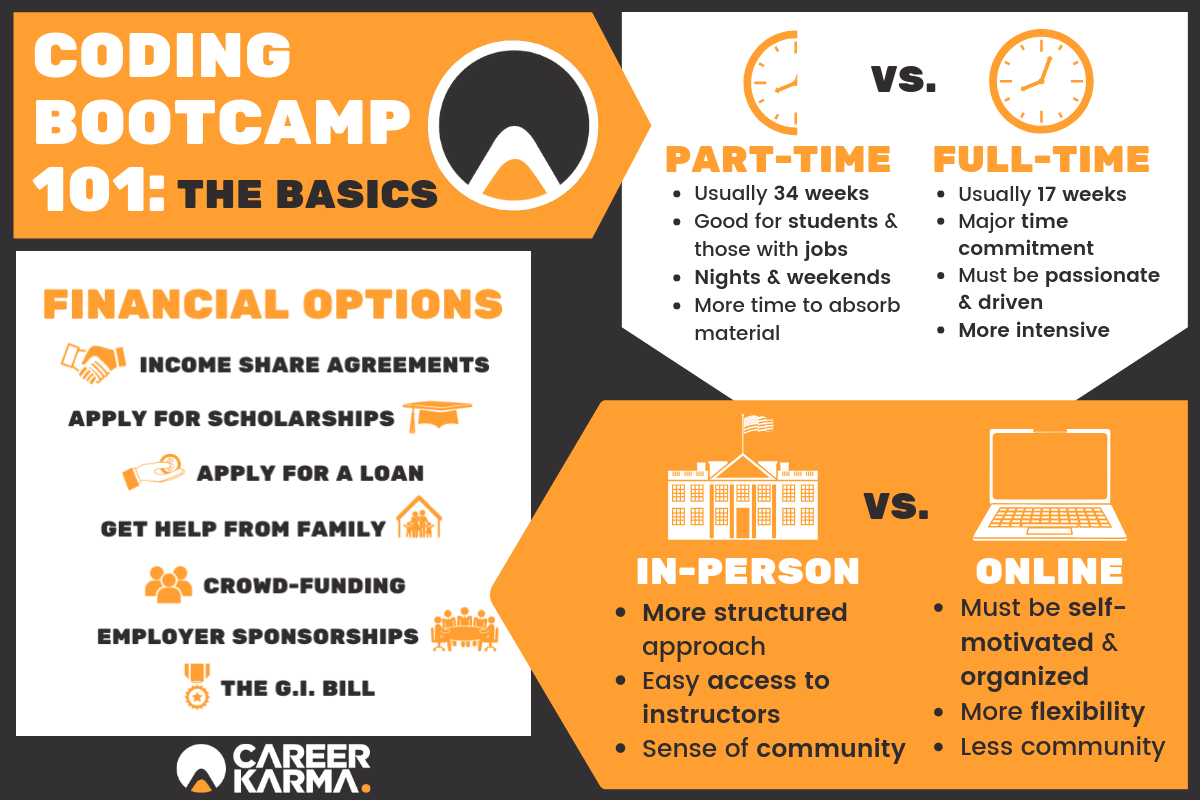Understanding “Free” Coding Bootcamps

The allure of a “free” coding bootcamp is undeniable, promising a pathway to a lucrative tech career without the hefty upfront investment. However, the reality of these programs is often more nuanced than the marketing suggests. Understanding the different models and potential hidden costs is crucial before committing to this intensive learning experience.
Models of “Free” Coding Bootcamps, Are there any free coding bootcamps
Several models offer bootcamps described as “free,” each with its own set of advantages and disadvantages. These models typically involve a trade-off, where the upfront cost is replaced by another form of commitment or future obligation.
Scholarships
Many coding bootcamps offer scholarships to individuals from underrepresented groups or those facing financial hardship. These scholarships typically cover a significant portion, or even all, of the tuition fees. However, competition for these scholarships can be fierce, and the application process can be extensive and time-consuming. Furthermore, scholarships often come with specific eligibility requirements that might not be suitable for all applicants.
Income Share Agreements (ISAs)
ISAs are a financing model where students don’t pay upfront tuition. Instead, they agree to pay a percentage of their income for a set period after securing a job above a certain salary threshold. While eliminating upfront costs, ISAs can lead to substantial payments if the student earns a high salary. Furthermore, the agreement terms vary greatly between providers, and some may have less favorable repayment conditions. For example, a bootcamp might require 15% of your income for 3 years after securing a job paying over $50,000 annually.
Volunteer-Based Programs
Some organizations offer free coding bootcamps run by volunteers. These programs often rely on community support and donated resources. While tuition is free, the quality and structure of these programs can vary significantly. The availability of support and resources may be limited, and the curriculum might not be as comprehensive or up-to-date as paid bootcamps. For instance, a volunteer-run program might lack access to advanced software or specialized instructors.
Hidden Costs of “Free” Bootcamps
Even if tuition is waived, several hidden costs can quickly accumulate. These expenses can significantly impact the overall cost of attending a “free” bootcamp.
These costs include:
- Cost of learning materials: Textbooks, online courses, and other supplementary materials can add up significantly.
- Software and hardware costs: Coding often requires specific software and potentially new hardware (a powerful laptop, for example), which can be expensive.
- Opportunity cost: The time commitment of a bootcamp is substantial, often requiring a full-time commitment. This means foregoing potential income from other employment during the bootcamp’s duration.
- Living expenses: Students may need to adjust their living arrangements or budget to accommodate the time demands of the program.
Learning Experience Comparison
While free bootcamps can offer valuable learning opportunities, the learning experience can differ from paid bootcamps. Paid bootcamps often provide more structured curricula, dedicated instructors, career services, and a stronger alumni network. Free bootcamps, depending on the model, may offer less personalized attention, limited resources, and potentially less robust career support. The intensity and rigor of the curriculum can also vary significantly.
Comparison of Free Bootcamp Models
| Model | Advantages | Disadvantages | Example (Illustrative) |
|---|---|---|---|
| Scholarship | No upfront cost, access to structured curriculum | High competition, eligibility requirements, may not cover all expenses | A scholarship from a well-known bootcamp covering 75% of tuition. |
| Income Share Agreement (ISA) | No upfront cost, potential for high earning post-graduation | Potential for significant debt if high income is not achieved, strict repayment terms | A program where 10% of income is paid for 2 years after earning above $60,000 annually. |
| Volunteer-Based | Completely free, community-driven | Variable quality, limited resources, less structured curriculum, potentially less career support | A local community center offering a beginner-level coding course led by volunteers. |
Finding Legitimate Free Bootcamps: Are There Any Free Coding Bootcamps

Securing a spot in a genuinely free coding bootcamp requires diligent research and a healthy dose of skepticism. While completely free, high-quality bootcamps are rare, many organizations offer free resources or pathways to potentially subsidized learning. Understanding the landscape of “free” offerings is crucial to avoid scams and wasted time.
Finding a reputable free coding bootcamp involves careful consideration of the provider’s background, the curriculum’s comprehensiveness, and the overall learning experience. It’s essential to approach any opportunity labeled “free” with a critical eye, verifying the legitimacy and assessing the potential value against the time investment. This section will guide you through identifying legitimate opportunities and avoiding potential pitfalls.
Reputable Organizations and Platforms Offering Free Coding Resources
Several established organizations and platforms provide free coding resources, though complete bootcamps are less common. These resources often focus on specific programming languages or skill sets, offering a valuable stepping stone to more advanced training. Examples include freeCodeCamp, which offers comprehensive curriculum in various web development areas, and Khan Academy, which provides introductory programming courses. These platforms generally lack the structured, intensive learning environment of a full bootcamp, but they serve as excellent starting points for self-directed learning. Other organizations may offer free introductory courses or workshops as part of broader initiatives aimed at increasing access to technology education. It’s important to note that while these resources are valuable, they rarely provide the same level of mentorship, career support, and structured learning environment as paid bootcamps.
Examples of Free Coding Bootcamp-like Programs and Their Requirements
While truly “free” full bootcamps are uncommon, some organizations offer programs with heavily subsidized tuition or scholarships, making them effectively free for eligible individuals. These programs often have specific eligibility criteria, such as demonstrated financial need, specific demographic backgrounds, or commitment to a particular industry or cause. For example, a non-profit organization might offer a free bootcamp for underrepresented minorities in tech. The curriculum would likely focus on relevant skills for employment in the tech industry, potentially including front-end web development, back-end development, or data science. Similarly, a tech company might offer a free training program for individuals committed to working for them after completion, effectively acting as an apprenticeship program. The eligibility requirements would vary greatly depending on the organization’s goals and resources.
Verifying Legitimacy and Accreditation of Free Bootcamp Programs
Before enrolling in any free bootcamp, verifying its legitimacy is paramount. Look for established organizations with a proven track record of providing quality education. Check for reviews and testimonials from past participants. While accreditation is not always necessary for free programs, the presence of reputable affiliations or partnerships with recognized institutions can enhance credibility. Investigate the instructors’ qualifications and experience. A lack of transparency regarding curriculum, instructors, or the organization itself should raise serious concerns. Remember that a program’s legitimacy does not guarantee job placement or career success, but it significantly reduces the risk of enrolling in a scam.
Red Flags to Watch Out for When Researching Free Coding Bootcamps
It is crucial to be aware of potential red flags that indicate a potentially illegitimate or low-quality program. These warning signs can help you avoid wasting your time and resources.
- Unrealistic promises of guaranteed employment or high salaries. Legitimate programs will emphasize skill development, but not guarantee specific job outcomes.
- Lack of transparency about the curriculum, instructors, or the organization’s background. A legitimate program will readily provide detailed information about these aspects.
- High-pressure sales tactics or aggressive recruitment strategies. Reputable programs focus on providing information and allowing prospective students to make informed decisions.
- Requests for upfront fees or hidden costs. While some programs may have nominal fees for materials or assessments, significant upfront costs are a major red flag.
- Overly positive or generic reviews and testimonials. Scrutinize reviews and look for diverse perspectives.
- Poorly designed website or lack of professional communication. A professional organization will have a well-maintained website and clear communication channels.


Tim Redaksi